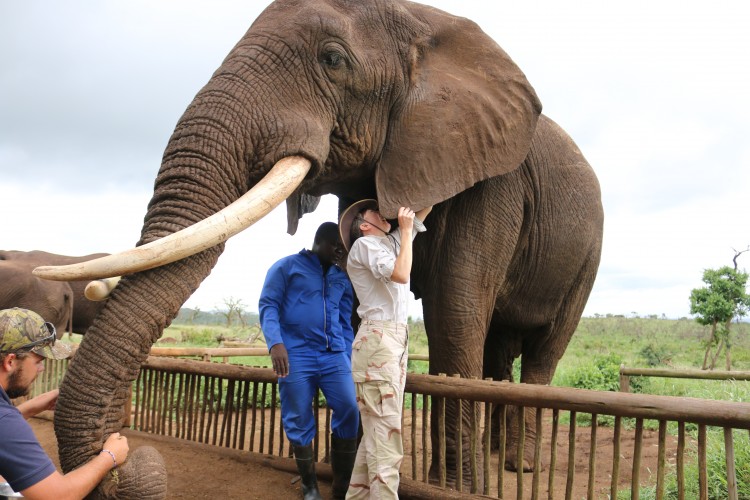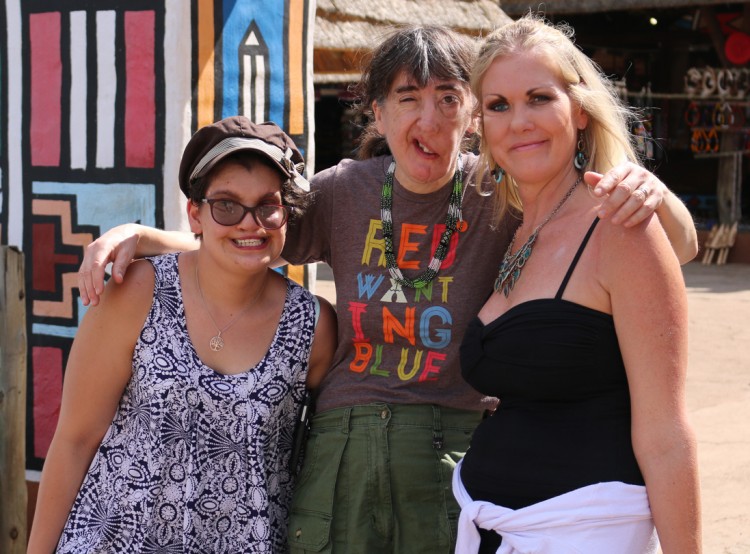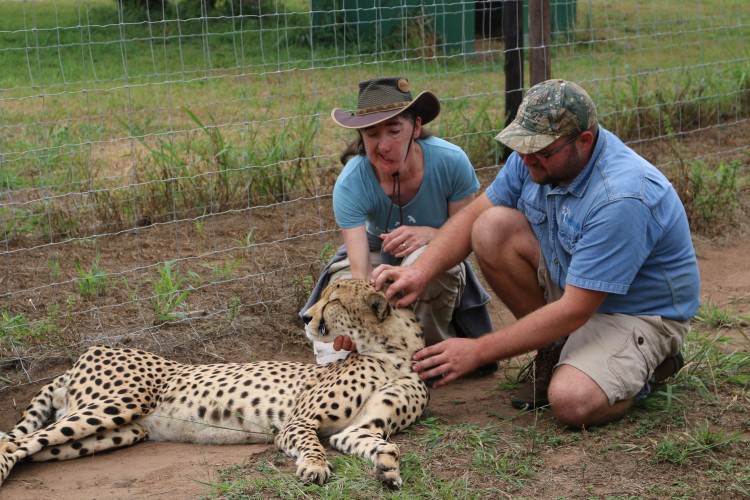In my experience, traveling with a facial difference isn’t much different from traveling without one.
I enjoy traveling. In fact, my husband Ian and I recently returned from an epic trip to South Africa. Good thing I am not afraid to show this face to the world.

However, I understand that some people with physical differences are afraid. Afraid of sideways glances, comments, stares, assumptions, questions… afraid of unwanted attention. I am not immune to these things — they do happen to me on occasion — but I have chosen not to allow them to interfere with my ability to experience and enjoy what life has to offer.
My facial paralysis has been with me all my life. Perhaps this gives me an advantage, as I know nothing different.
Another advantage may be that I am no stranger to traveling. I went with my parents and siblings on many a family trip from a very young age — trips that criss-crossed these great United States. This early exposure got me used to the reactions of others, and the fact that my parents didn’t hide me away taught me I had value.
I was also instilled with a sense of independence. When I was 19, I spent a university term visiting Italy and England as part of a College of Fine and Performing Arts tour, which required participating students to visit art museums and attend theatrical and musical performances. After that life-changing experience, armed with a BritRail pass, I took off completely on my own for two weeks to northern England and Scotland before returning home. During my European travels, I have no recollection of being treated any differently because of my appearance. In fact, I remember that fellow travelers were very helpful, especially when I was on my own.

Nowadays, whenever I travel, if the opportunity lends itself, I’ll meet people in person I would otherwise have only known via the internet or social media. For me, it is often people from the facial difference community. In this digital age, there is still no substitute for a handshake, an in-person conversation, and a hug. The South Africa trip was no exception. I was honored that James Partridge of Changing Faces took the time to meet us at the airport in Heathrow during our long layover. In Johannesburg, I had the pleasure of meeting social media friends Vanessa and Aneesa.
Did my different face receive unwanted attention during this journey? Sure. Since my face is now tied in with my profession, it is possible that I am more aware of being noticed than I used to be.
I got a few looks from the group of men in a large party seated near us in a restaurant in Cape Town. But very quickly, their own topics of conversation became much more interesting than my appearance. Admittedly, we were just as curious about them — what would bring this rather large group of middle-aged and older men together? I eventually asked one of them, and was informed they were a group of opera lovers who met monthly. They had selected the restaurant for this particular meeting because they were marking a special occasion.
There was the woman at Zulu Nyala, the private reserve/resort where we did our safari excursions, who took a good long look at me, even after I’d noticed her. I thought maybe she was European and it might be a cultural thing to not have the sort of boundaries that would cause her to look away after I’d caught her staring. However, I found out the next day that she was American!
And there was the guy wearing a kilt who asked Ian about my face while I was shopping in the gift shop. When Ian told me this, saying the guy was a retired anesthesiologist citing “professional curiosity,” my initial reaction was, he could have asked me! I was, after all, standing 15 feet away. As a medical professional you’d think he’d know better, But… they often don’t. (That’s a whole other topic, and as a speaker, I would love to address the medical profession about this.)
Any of these things could have happened near my home town. In fact, similar incidents have. For some, the next town is too far. Heck, for some people, their front door forms a significant barrier between them and accepting the world.
The majority of people I came into contact with, including our drivers and guides, treated me with professional respect. I’m sure they noticed my difference and were probably curious, but they neither asked about it nor betrayed it in their expression. Frankly, what they thought of me initially didn’t matter. I really didn’t care. I cared that they treated me professionally and helped me have a good experience. And they did.
Being afraid of what others think is a sticking point for a lot of people. It’s something we have no control over, yet we all too often allow it to affect our choices and actions. I believe in doing so, we are giving others control over us.

If you are one of those people for whom traveling to a foreign country is too big of a step, try taking smaller steps. Go with a friend or relative rather than going alone. Engage in an activity that occupies your mind. If you’re worried about unwanted attention, try to concentrate on what you’re there to do or see rather than those around you. Keep pushing your comfort zone. If you become a victim of unwanted attention, process the experience and move on, but don’t allow it to force you into hiding. No one should be allowed to have that sort of control over you. And usually they mean no harm.
If I was afraid to venture out, think of all the stuff I’d miss out on. Like feeling the inside of an elephant’s ear. Or petting a cheetah. The opportunities to do these things are a direct result of the choices I’ve made. This includes the choice to not let my facial paralysis or worrying about what others think stop me from getting out and experiencing the world.
You, too, have a choice. Face your fear. Own your life. Choose freedom.
Follow this journey on Facing Up to It.
We want to hear your story. Become a Mighty contributor here.

